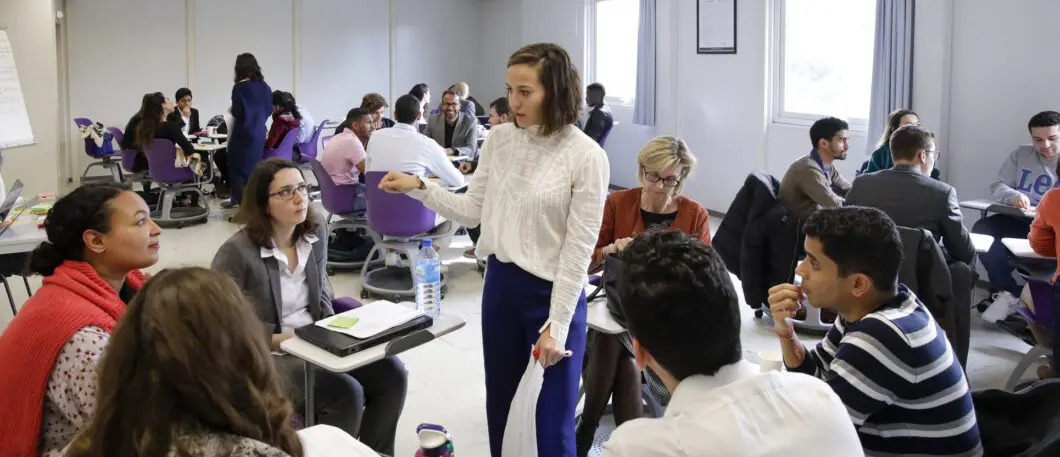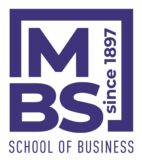students are the core of the teaching
The teaching method developed by Montpellier Business School favours the learning of practices and the mastery of professional tools while relying on the contributions of theory and the most recent academic research.
At MBS, the teaching method puts the learner at the heart of the training through active and dynamic learning. It aims at empowering the student, developing his/her autonomy, maturity and initiative by enhancing the impact of face-to-face learning and working experiences.
The entire MBS teaching staff is trained to use this method which is deployed in all MBS programmes and adapted to the learners.
THE 5 KEY STAGES OF PERSONAL AND IN-CLASS WORK
Before class, the learner prepares his/her lesson independently.
PREPARATION OF THE COURSE
This stage allows students to become familiar with the course subject. It also encourages interactivity during the session.
Students are provided with learning resources and are able to use them autonomously. In-class sessions can therefore focus on critical thinking, problem formulation and solving, creativity, imagination and discussions around the topics and knowledge covered.
During the in-class session :
STUDENT’S FEEDBACK
The professor checks the knowledge acquired during the preparation phase and the previous sessions. This phase is interactive and provides an opportunity to discuss and integrate current issues into the course. The feedback can take different forms depending on the subject, the audience and the design of the course (presentation, quiz, discussion/debate, etc.).
THE professor’S THEORETICAL INPUT
This stage enriches and links the knowledge acquired with theoretical concepts.
The professor expands the acquired knowledge and connects it with theoretical concepts. On the basis of the learners’ feedback, the professor brings his or her added value by answering questions and enriching the knowledge with theory. This phase is a key teaching moment that is personalised and adapted to the audience’s specificities and the topics addressed.
putting concepts into practice
At this point, the learners will test the concepts and methods in real conditions with different parameters: the type of company, its business sector, the market context, the economic situation and current issues.
If the topics covered during the session require it, the professor organises pedagogical activities to put the acquired knowledge into practice (e.g. exercises, mini-cases, projects, both individually and in groups).This implementation demonstrates the relevance of the theory which remains applicable in the different contexts of use. It should also lead to questioning the possible theoretical limits, to identifying the problems that sometimes remain without a definitive answer and to understanding the adjustments that must be made in order to make the theory operational.
SUMMARY OF THE KEY ELEMENTS OF THE SESSION
This synthesis aims to consolidate what has been learned (knowledge, skills, methods, etc.) and to put it into perspective in the learning process.
The professor summarises the most important items to be retained on the session’s theme, reinforces the key elements, places the acquired knowledge in the context of the course and links it to the following session’s work.


